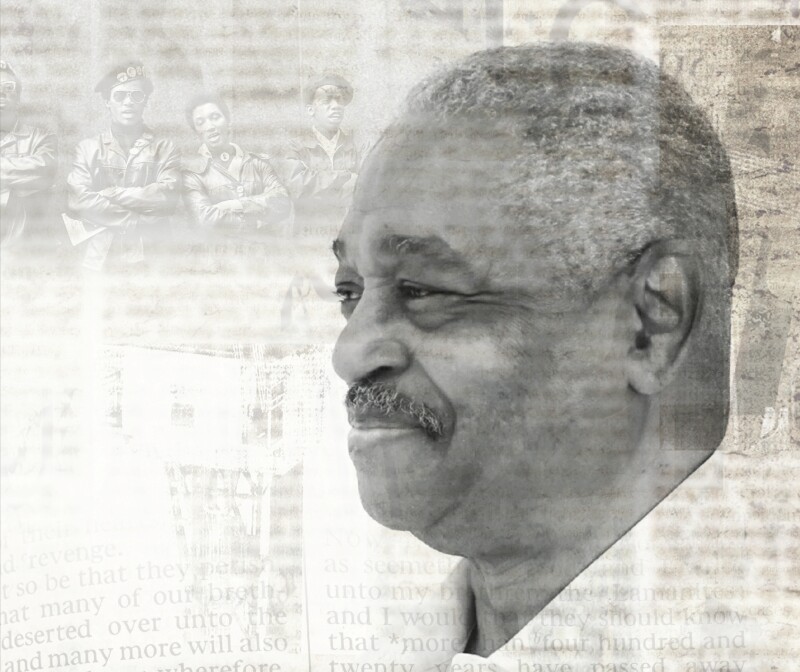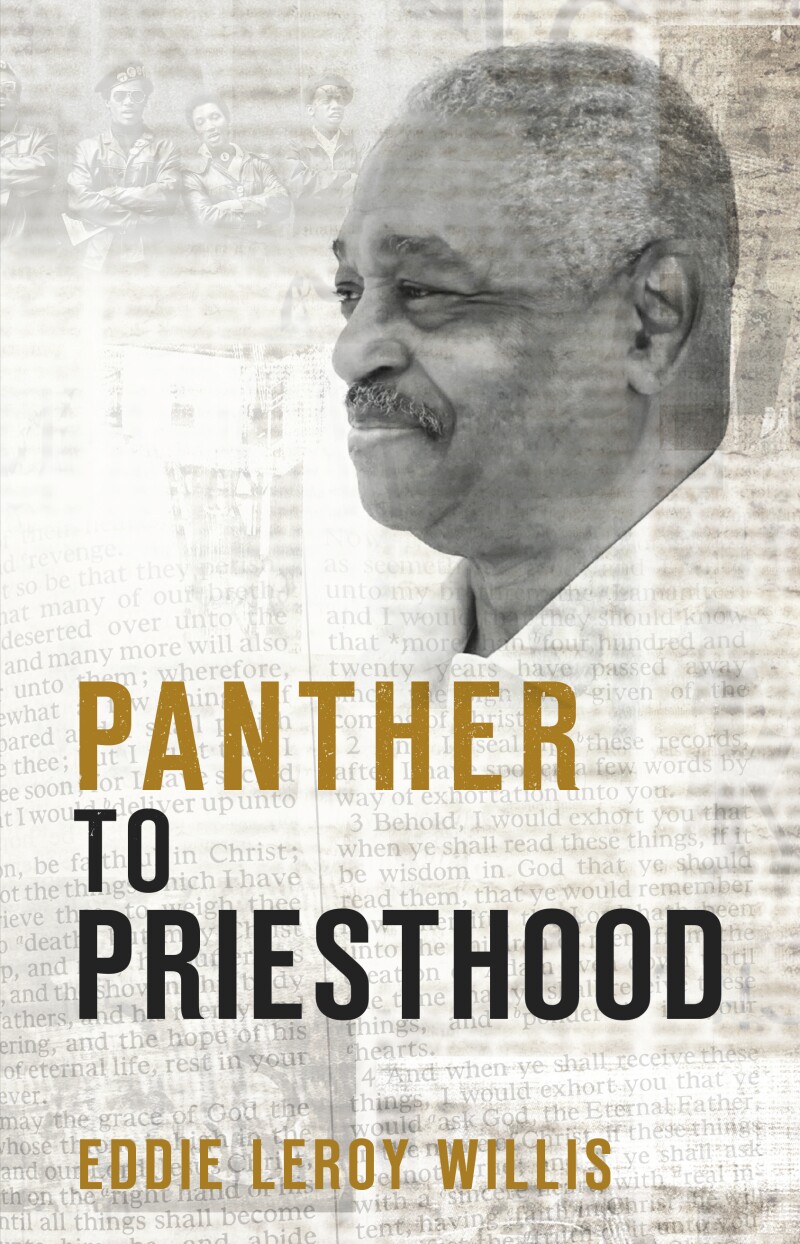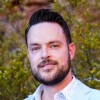Editor’s note: This article originally ran in the May/June print issue of LDS Living magazine.
Eddie Leroy Willis is the author of Panther to Priesthood, which tells his story of being raised in poverty, searching for meaning in the Black Panther Party, and ultimately joining the Church in 2006. We recently asked him about his book and his experiences as a Black member of the Church
What was it like to write an autobiography?
It was very difficult to write. My hang-up was, I think, that maybe I hadn’t totally forgiven myself—because I was embarrassed about some of the ways that I’d lived. I was too embarrassed to share these things. But my wife [Wanda] had to keep constantly trying to convince me that the Lord had forgiven me for this stuff.
How did the 1978 revelation on the priesthood play into your experience as you investigated the Church?
It didn’t really play that much into my experience because I didn’t find out about the racial issues with people of African descent and the Church until I had been a member for a maybe a year. Because to me, just being a member was phenomenal.
And then I found out that I, Ed Willis, could have the Aaronic Priesthood. And that meant a real closeness to Heavenly Father and Jesus Christ. And then finding out that I could be in the Melchizedek Priesthood—it was just like glory after glory after glory.
What kinds of changes took place in your life as you transitioned from Panther to priesthood holder?
I learned that you can’t get liberty, you can’t get approval, and you can’t find your worth through men. So, Jesus being the equation to all things, I found that my level of worth came through Christ.
Even before Panther, I never could get that from any teacher in school. What I was looking for in the world, I could not find. My value system was a wreck until Christ came into my life, and then I began to feel value.
It’s something I’m not sure that I can explain, but when you finally get to the place where your belief system allows you to put your faith and trust in Christ, some things begin to evolve inside your life. Your actions begin to make your environment change—whether it’s geographically or mentally or emotionally.
So that transformation in my value system—from Panther to priesthood—it was like from night until day.
What would you like others to understand about the experience of Black members in the Church?
I believe that the wedge between white and Black, or men and women, or other cultures, is authored by the enemy of all humankind. Period. And I also realize that racism is a learned thing. So don’t let that issue keep you from the gospel, or The Church of Jesus Christ of Latter-day Saints, because the racism aspect is from people; it’s not in the doctrine of the Church to be racist against any people.
How do you hope your story will bless others?
I didn’t want the book to be a complaining or “woe is me” thing. Because we have a strong and passionate gene in my race. There’s a lot of strength in it. There’s a lot to be proud of. And so I’m hoping that African Americans will read and realize that in spite of what the status quo might mean for you, or what the enemy, which is Satan, might want for you—that doesn’t matter to God. Because God loves you equally as everyone else.
Everybody in the world really wants and needs to be loved. And so, a lot of times, with so many difficulties being bombarded on you in your life, you might not feel any love. Maybe not even in your own family. But when you realize that the highest Being known to man loves you, … then you’ve got a shot.
Read a portion of Panther to Priesthood here: “Panther to priesthood: A Black Latter-day Saint’s experience with racism and belief.”



